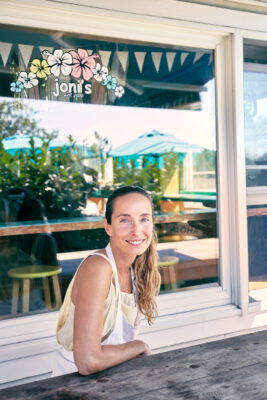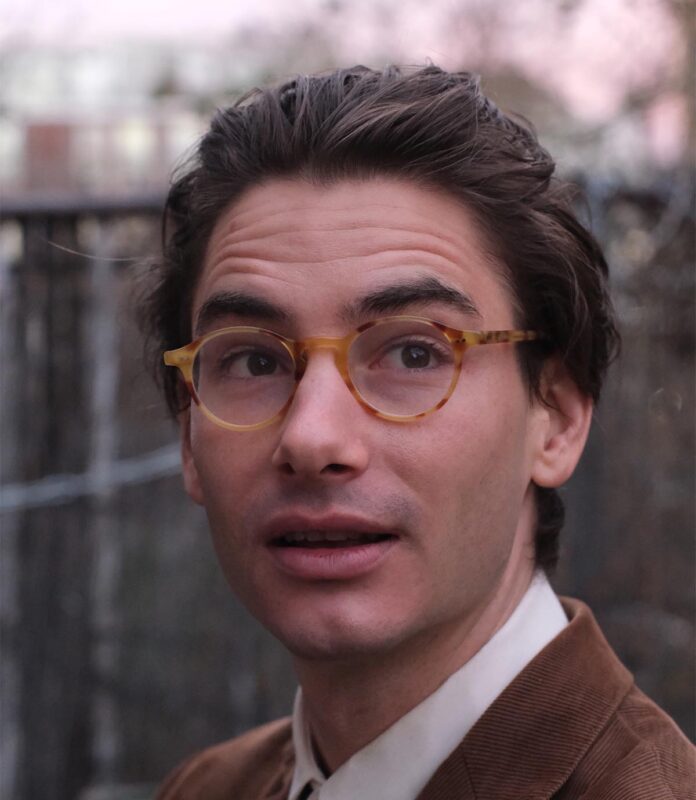
The DP Interview
Playwright/author Matthew Gasda
He is not comfortable with comfort, nor virtue. And in the just-published collection of his plays, he writes about what he fears—for his friends, and for himself.
The themes prominently featured in the newly published Dimes Square and Other Plays include heavy drug use, infidelity, swapping partners, porn, cheating, incest, and—oh yes—lots of smoking. Adding it all up, it begs the question as to whether playwright Matthew Gasda believes in the maxim “Write what you know.”
“It’s not the sum of my interests,” the 34-year-old says gently. “It’s not me. I don’t do drugs, I’ve never smoked a cigarette. My plays are what I don’t want my life to become.” He does drink Fernet, which is heavily name checked in his work, but he’s not having it at the moment.
We’re in a Guatemalan restaurant close to Prospect Park in Brooklyn near his sublet, a gathering place for young families and hipsters alike. A large mural of a jaguar dominates the room, along with folk art and many guitars. Gasda, tall and rakish, walks in wearing a scarf, which playwrights might be required to do. “Yes,” he acknowledges, “But it’s also cold!” He periodically pops on a pair of horn-rimmed glasses, adding to the literary effect. “I have a slight head cold,” he says, recommending the hot chocolate, but ordering a spicy soup to clear his sinuses. “It might be stress.”
Gasda has a lot on his plate. The book, published by Rowman & Littlefield, comes out in mid-May, and an earlier play, Afters, is slated to be produced at the end of April, at a warehouse space in Greenpoint. “It’s the most autobiographical work, a relationship drama. I’m not the most monogamous person. Never have been. My POV as an artist is we’re all sinners. My working assumption is ‘everyone’s like me.’” (Spoiler alert: Chat about bisexuality, threesomes, and cheating figure in Afters.)
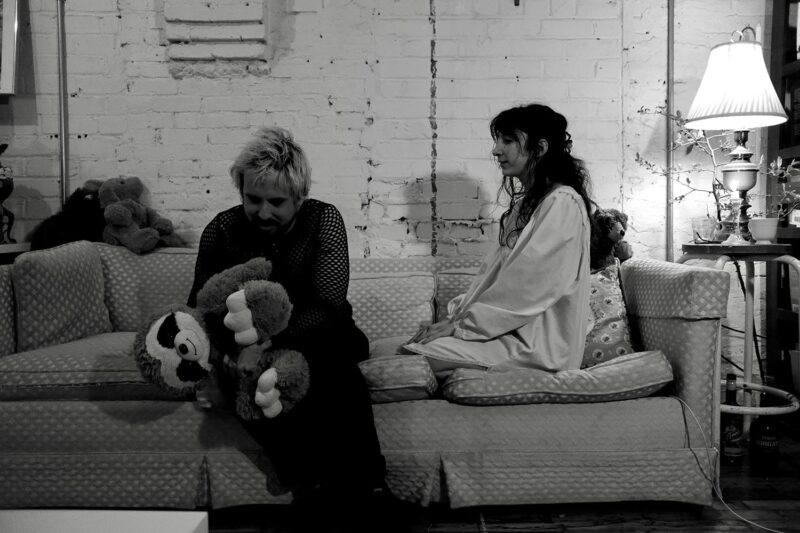
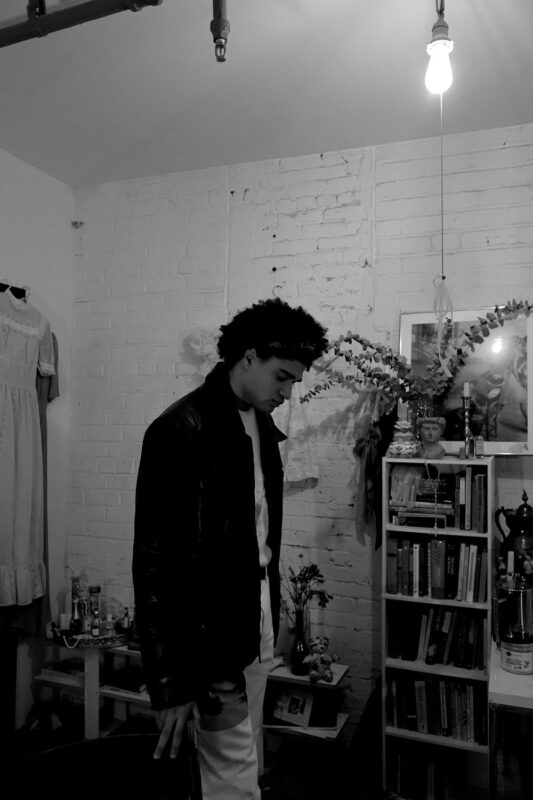
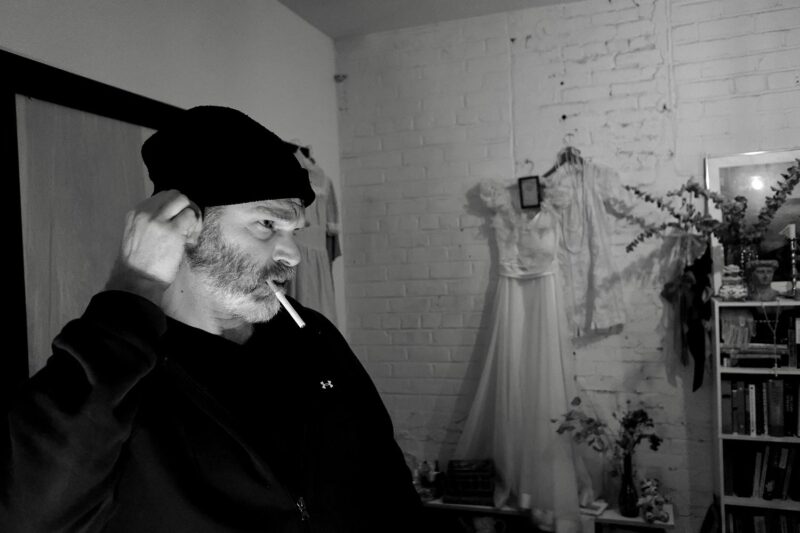
Never one to seek out conventional venues for showing his work, Gasda has put on plays outdoors, in a TriBeCa apartment, in a Greenpoint loft. The pandemic led to sudden interest in these sorts of unconventional theater experiences (as there weren’t any alternatives at the time), and after a glowing review in New York magazine, followed by a profile in the New York Times, he’s now red hot. How has life changed? “My life is a hybrid of my old life and new life. I’ve had to work harder, because the scope of my work has grown. There’s more bureaucracy now with the plays. There’s more interest in me as a screenwriter.”
Gasda grew up in Bethlehem, PA, with a father who taught history, and a mother who was a paralegal. He says he was a terrible student, but, “I was interested in books. My dad thought I was crazy, reading all day.”
After majoring in philosophy at Syracuse University, he moved to New York City. “I was ambitious, and that’s where ambitious people go. I wanted to be a writer, but I was heading toward being a dramatist.” Needing a day job, Gasda has worked as a tutor, an adjunct, an English teacher. Has any of this leaked into his plays? “One of the TV shows I’m pitching does, the tutoring side.” While he generally likes to work on a typewriter, “I edit student papers on a laptop on the subway.”
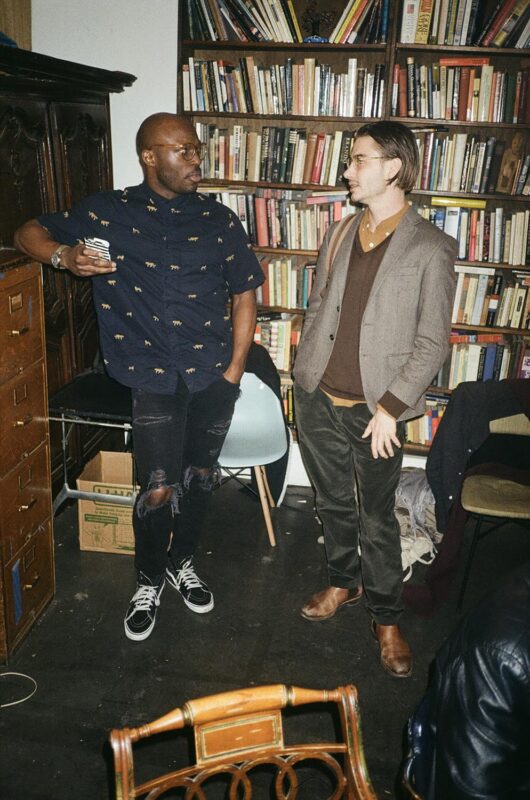
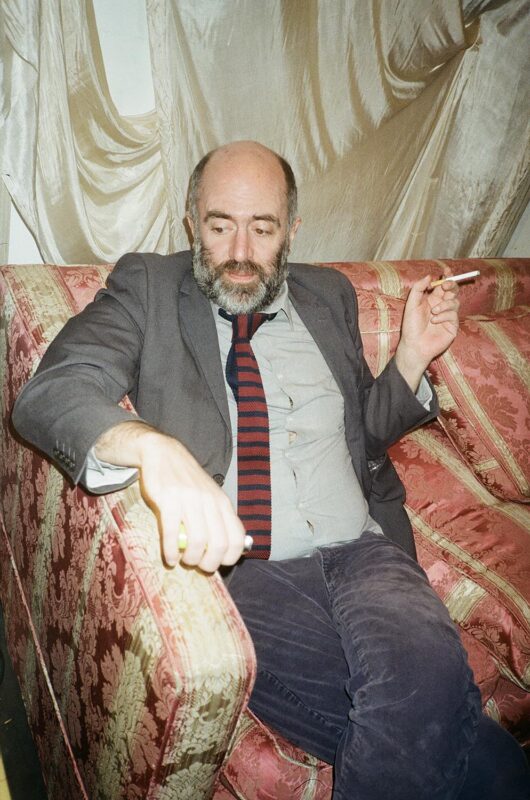
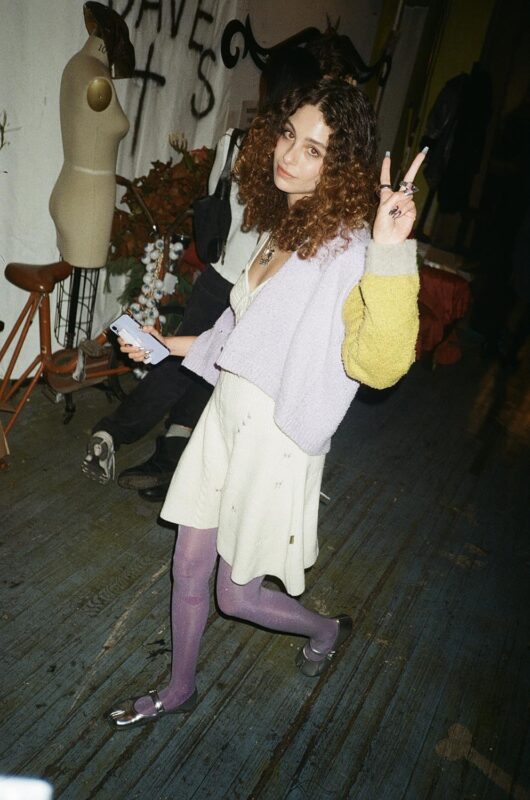
He has written about topics other than the inflammatory ones on display in the collection—his play Dover, for example, concerns a fraught relationship between a mother and daughter—but he seems drawn to the troubling side. “I got close to selling a novel this year. It might have made people uncomfortable. It would have been risky.” And he’s used to provoking that reaction in his audiences. “People do get upset, there’s discomfort. I’ve had people walk out—they felt personally attacked, when I hadn’t seen them in years. I’ve had people claim I took something from them.”
A natural hazard, considering he’s a fan of collaboration. “I put a lot of trust in people. I think they do their best work that way.” Dimes Square, written when Gasda was 32, “could have been titled ‘The Circular Firing Squad,’ the warfare between millennial men shitting on one another.” The title actually refers to a microneighborhood on the borders of Chinatown and the Lower East Side, a place where creative types hung out (there’s a diner called Dimes) in the 2010s. “I didn’t hang out there, but I liked the idea of a private public square. People who saw the play were really positive. People who read it were really negative. ‘Oh you just glommed on and got lucky.’ In Afters, the people in my generation have faded into the background. The younger generation isn’t interested in ‘Did you get a book deal?’ Now with TikTok, and getting followers, it’s a different situation.”
So how did he get a book deal? The short version: “Everything good that’s happened to me has happened because of meeting people.” Gasda cast Bob Laine as a book editor in Dimes Square, and Laine was telling his friend Chris Chappell, an actual book editor at Applause Books, a division of Rowman & Littlefield, about the play, and Chappell was intrigued. “It sounded interesting,” recalls Chappell, “and then Matt had his New York Times profile and there were all of these trend pieces about Dimes Square the neighborhood. It was sort of a no-brainer, with all of the attention he was getting, I assumed I was too late when I reached out to Matt through Bob, that someone was already publishing the plays.” But he wasn’t too late, and a book deal was born.
While it might seem that Gasda has led a charmed life, he begs to differ. “I put on a play that was three hours long. Five people showed up.”
I ask him about the scene in Tootsie when Bill Murray, as a playwright, says “I don’t like it when people come up to me and say, ‘I really dug your message, man.” Or, ‘I really dug your play. I cried.’ I like it when people come up to me the next day, or a week later, and say, ‘I saw your play. What happened?’”
Gasda laughs and says, “That’s exactly how I feel.”
Hero photo of Matthew Gasda by Christian Frederick Stevenson
